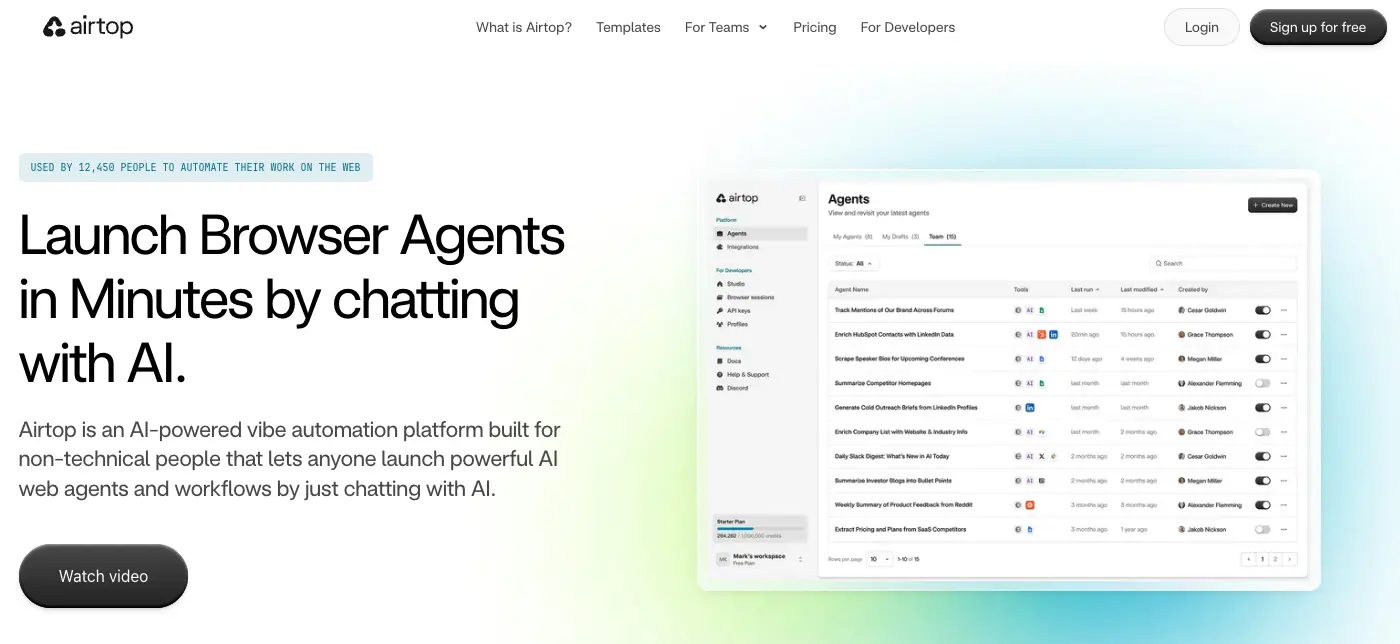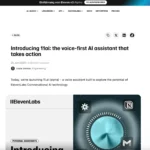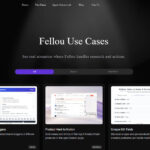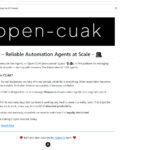AI-supported web automation is at a turning point: for the first time, platforms such as Airtop enable non-technicians to create complex browser automations using simple voice input.
The global AI browser market will grow from 4.5 billion dollars today to an estimated 76.8 billion dollars by 2034 – a growth rate of 32.8% annually, reflecting the increasing demand for intelligent web solutions.
Airtop positions itself as a conversational web agent builder that breaks through the traditional barriers of web automation. While traditional automation tools require extensive programming knowledge and complex configurations, Airtop enables its 12,450+ active users to describe automations through natural language. The system interprets these instructions using advanced large language models and creates reliable, repeatable automation scripts.
Airtop’s technical architecture is based on a cloud-based browser infrastructure with seamless integration into the LangChain ecosystem. This connection enables the flexible use of different AI models such as GPT-4, Claude and Gemini, allowing the platform to be optimized for different use cases. The modular design via LangGraph allows browser automations to be constructed as subgraphs and the system to be extended dynamically.
The market for intelligent browser technologies
The rapid market development is led by North America, which already accounts for 36.6% of global sales at 1.6 billion dollars. Companies are increasingly recognizing the productivity gains of AI-powered browsers: 75% of organizations worldwide already use sales automation, while marketing teams use automation 76% more often than sales teams and 139% more often than finance departments.
Airtop’s Extract API enables structured information extraction from web pages, including complex data such as LinkedIn URLs or airfare monitoring. The Act API extends these capabilities with the ability to perform actions on websites – from search queries to complex multi-step workflows. This combination of extraction and action transforms Airtop from a passive data collector to an active automation platform.
Security challenges and future prospects
The autonomous nature of agentic browsers introduces new security risks that surpass traditional browser security concepts. Prompt injection attacks can trick AI agents into performing unintended actions, while cross-domain exploits take advantage of trust relationships between different web services. Memory and data leaks through persistent agent memories increase both the reach and persistence of security breaches.
The future of AI-powered web automation will be characterized by the development of advanced AI orchestration systems that can connect multiple agents and handle multilingual and multimedia data processing. However, companies will need to develop their API ecosystems and enterprise readiness capabilities to successfully implement these technologies. Pricing models are evolving towards usage-based structures that better reflect the variable nature of AI-powered services.
Key facts about the update:
- Market volume: AI browser market grows from 4.5 billion dollars (2024) to 76.8 billion dollars (2034)
- User acceptance: Over 12,450 active users use Airtop for web automation without programming knowledge
- Technical basis: Integration with LangChain ecosystem enables flexible use of GPT-4, Claude and Gemini
- Degree of automation: 75% of organizations use sales automation, marketing teams 76% more often than sales
- Security risks: New attack vectors through prompt injection, cross-domain exploits and persistent agent storage
- Pricing: Usage-based models starting at 29 dollars per month with free basic options
- Market leadership: North America dominates with 36.6% market share and 1.6 billion dollars in revenue
- Future trend: AI orchestration systems will become the backbone for enterprise AI implementations
Source: Airtop







